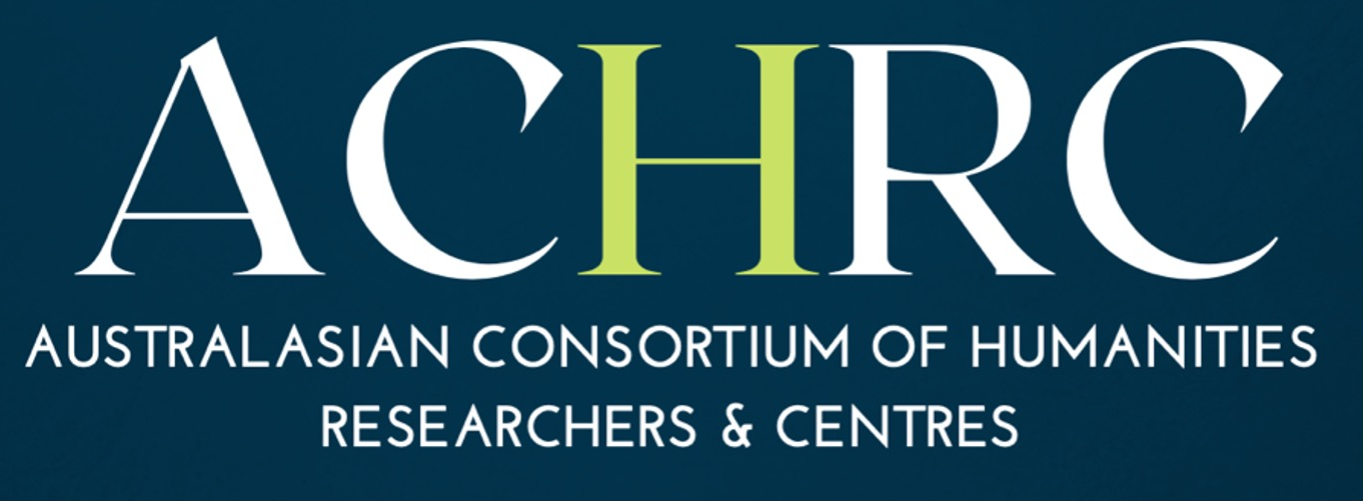Sad news about the passing of Srinivas Aravamudan. Srinivas addressed our inaugural meeting, in Adelaide in 2011, and was a friend of our consortium as well as of the humanities internationally.
Letter from Sara Guyer – Srinivas Aravamudan 1962-2016
Dear CHCI Colleagues and Friends,
As many of you will now have heard Srinivas Aravamudan, current and former President of CHCI, passed away on April 13. This is a tremendous loss.
Srinivas was a fierce advocate for the humanities. It is largely due to his vision, his dedication, his intellectual vibrancy, and generosity of mind and spirit that CHCI has become the organization that it is today. Many of you are involved with CHCI because Srinivas led it to become a truly international consortium, one that not only represents but also generates and actively supports new areas of research in the humanities. More than this, with tremendous care and intelligence, and equal measures of style and wit, Srinivas ensured that each CHCI project was a convergence of intellectual and strategic work. We will miss him terribly.
Srinivas was an award-winning scholar of eighteenth-century literature and philosophy as well as critical theory and post-colonial studies. He trained in Madras, Purdue, and Cornell, and taught at the Universities of Utah and Washington before arriving at Duke University in 2000. At Duke, Srinivas taught in English, Literature, and Romance Studies and directed the Franklin Humanities Institute before becoming the Dean of Humanities.
In 2014, soon after many of us gathered in Hong Kong for the CHCI annual meeting, and soon after his last book Enlightenment Orientalism: Resisting the Rise of the Novel, won the Perkins Prize for “the most significant book in the study of narrative,” Srinivas learned that he had Glioblastoma Multiforme, a vicious brain tumor. For nearly two years, Srinivas underwent treatment, experimental and traditional, hoping against the odds. Throughout this ordeal, he was bolstered by the relentless and compassionate support of his wife Ranjana Khanna. And throughout it all, he continued to envision new projects for the humanities; expand his own scholarship to deal with literary criticism in the time of the anthropocene; oversee the Humanities Writ Large initiative at Duke; lay the groundwork for CHCI’s African Humanities and Arts Consortium; and serve as the president of both the American Society for Eighteenth Century Studies (ASECS) and CHCI.
We will dedicate the 2016 CHCI annual meeting to Srinivas’s memory. The London meeting will focus on “Area Studies in a Globalizing World.” I expect that we will feel Srinivas’ presence, as well as his profound absence throughout our time together. I am grateful to our hosts in London, Roger Kain, above all, for allowing us to devote the evening of Wednesday, June 29 to a memorial and celebration of Srinivas’s contribution to the CHCI and the humanities more generally. All CHCI members and meeting attendees are invited to attend. In time, we also will find more permanent ways to remember him.
Over the past two years, and even before Srinivas learned of his illness, the CHCI Board has planned for presidential succession and institutional transition. We have worked closely with CHCI staff on matters large and small, and the process is underway for the organization to move from Duke to Madison before the end of the year. I am grateful to the past-presidents of CHCI, members of the Board, and staff at Duke, in particular, Sylvia Miller and Conal Ho, for their resilience and care during this difficult, often very sad period.
I can assure you that in the coming years, I will look forward to sustaining Srinivas’s legacy at CHCI as well as initiating new projects and initiatives that will energize the Consortium and the global humanities more generally. In the meantime, we will grieve. I know that you will join me in sharing our profound sympathy with Ranji and their young son Nachiketa Kumara, as well as Srinivas’s family, friends, and colleagues around the world.
In sadness,
Sara
—
Sara Guyer
President, Consortium of Humanities Centers and Institutes
Director, Center for the Humanities
Professor of English
University of Wisconsin-Madison
